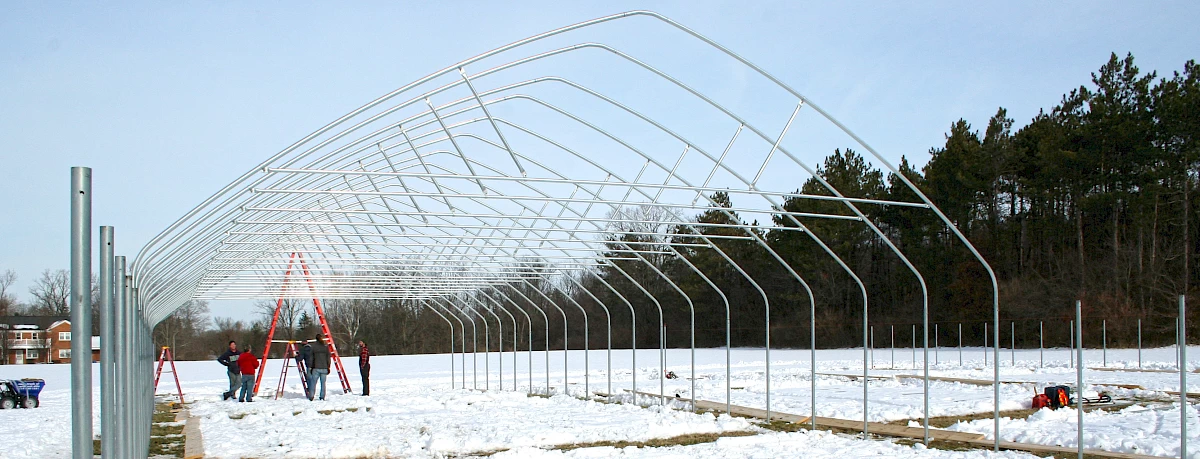Soon after the arrival of President Jay Rundell in 2006, MTSO began incorporating ecotheology into its curriculum and exploring ways to better steward its 80-acre campus. An idea emerged to better use vacant campus land, much of which the school was paying to mow, by starting a farm that could provide fresh local produce to the campus dining hall and through sales and donations in the surrounding community.
A farm can also model best practices for seminary students and other religious organizations, many of which own unused land that could be used to grow food. Today, Seminary Hill Farm has expanded to 10 acres and become the most visible component of MTSO’s wide-ranging commitment to sustainability, which include the installation of a solar array to power some campus facilities and geothermal wells to heat and cool them.
Leadership in ecotheology
Taking advantage of unique synergy between the farm and educational facilities, MTSO has hosted regional, national and international gatherings around ecotheology. In 2019, MTSO joined with the Center for Earth Ethics, the Climate Reality Project and Ohio State University to host a three-day conference, “On Food and Faith: Ministry in the Time of Climate Change.” Former Vice President Al Gore, founder and chairman of the Climate Reality Project, participated in all three days of the conference.
“Having learned of the fantastic work that’s been under way for quite some time at MTSO, it seemed like a wonderful opportunity to have the training on this beautiful campus this year,” Gore said. “It’s an extraordinary place – a school and a farm, all together. I’ve really enjoyed it, and I’ve learned a lot.”
A sense of community
Seminary Hill Farm occupies two 5-acre fields at opposite ends of the MTSO campus; the farm used one the first three years and expanded in the fourth year, while adding a 32- by 72-foot transplant production greenhouse in 2018.
Over the years, the MTSO community has evolved with the farm. Community members have engaged in the CSA program, both on campus and throughout greater Columbus, and shared in the abundance of both produce and common purpose. MTSO founded a campus farm and in the process discovered a true sense of community bound together in celebration of sustainable agriculture and local food.

